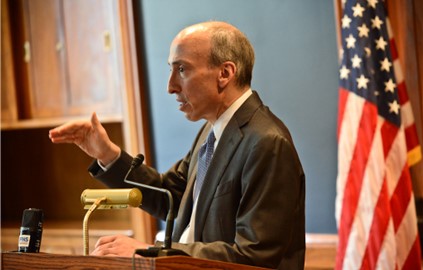Image Credit: Rodnae (Pexels)
Federal Reserve Board Issues Economic Well-Being of U.S. Households Report
The Federal Reserve Board on Monday issued its Economic Well-Being of U.S. Households in 2021 report, which examines the financial lives of U.S. adults and their families. The report draws from the Board’s ninth annual Survey of Household Economics and Decisionmaking, or SHED, which was conducted in October and November of last year before the increase in COVID-19 cases from the Omicron variant and other changes to the economic landscape in recent months. The report, fact sheet, downloadable data, data visualizations, and a video summarizing the survey’s findings may be found here.
The report indicates that self-reported financial well-being reached its highest level since the SHED began in 2013. In the fourth quarter of 2021, 78 percent of adults reported either doing okay or living comfortably financially. Financial well-being also increased among all the racial and ethnic groups measured in the survey, with a particularly large increase among Hispanic adults. Parents were one group who reported large gains in financial well-being with three-fourths saying they were doing at least okay financially, up 8 percentage points from 2020.
“The SHED results provide valuable insight into Americans’ financial conditions during the late fall of 2021. This important perspective helps the Federal Reserve better understand the economic challenges that existed during that phase of the pandemic recovery,” said Federal Reserve Board Governor Michelle W. Bowman.
The share of adults who reported that they would cover a $400 emergency expense using cash or its equivalent similarly increased to the highest level since the start of the survey—68 percent—and was up from 50 percent when the survey began in 2013. Eleven percent of adults could not pay the expense by any method.
In addition, the survey presents insight into the experiences of workers through the pandemic. Fifteen percent of workers said they were in a different job than 12 months earlier. Most who changed jobs said the job change was an improvement. Remote work also continued to evolve in 2021. During the week of the survey in late 2021, 22 percent of employees worked entirely from home, down from 29 percent in late 2020, but well above the 7 percent who worked entirely from home before the pandemic. Most employees who worked from home preferred to do so, often citing work-life balance and less time commuting. Those working from home indicated that they would be about as likely to look for a new job if required to return to the office as if their employer instituted a pay freeze.
In addition, the
report explores families’ experiences related to banking and credit, income, housing, retirement, student loans, and retirement alongside several new topics, such as the use of emerging financial products including cryptocurrencies and “Buy Now, Pay Later” services.
| This press release was originally published by the U.S. Federal Reserve on May 23, 2022. Links to the survey results and release are provided below. |
Suggested Reading
 Tulip Mania Compared to Cryptocurrencies and Meme Stock Investing
|
 Why Good Economic Numbers Can Cause a Selloff
|
 SEC Chairman Links Crypto and Other Financial Markets
|
 Is the Bear Market Bull?
|
Sources
https://www.federalreserve.gov/publications/report-economic-well-being-us-households.htm
https://www.federalreserve.gov/newsevents/pressreleases/other20220523a.htm
Stay up to date. Follow us:

|

